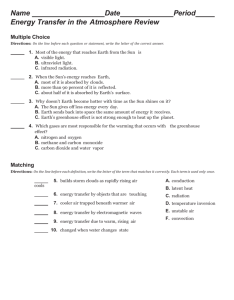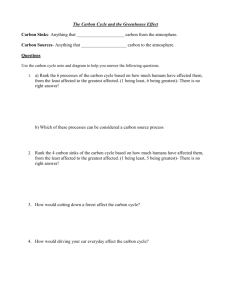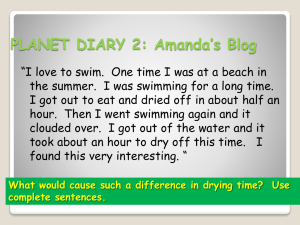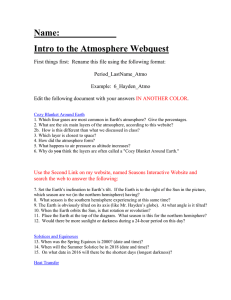The Atmosphere National Weather Service Shreveport www.srh.noaa.gov/shv
advertisement
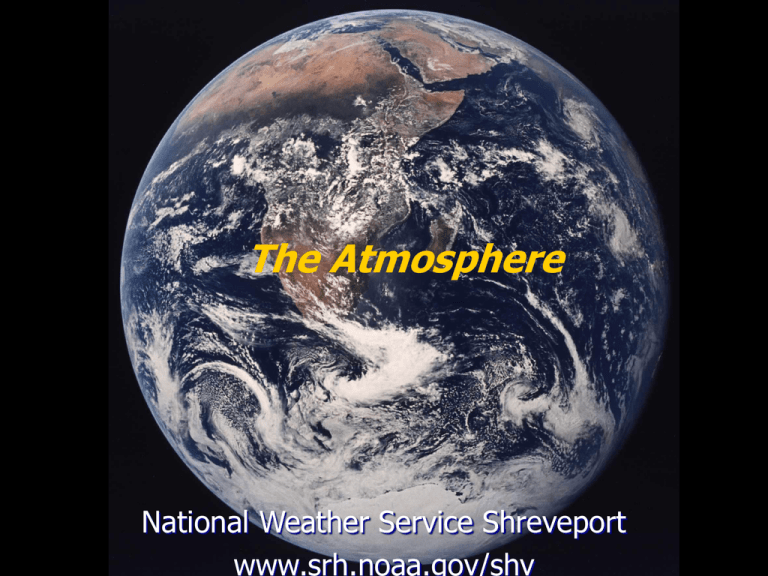
The Atmosphere National Weather Service Shreveport www.srh.noaa.gov/shv Transfer of Heat Energy 1.Radiation 2.Conduction 3.Convection Radiation •The transfer of heat energy by electromagnetic radiation. •Earth is heated by this process. - various substances on earth (dirt, rocks, water, concrete, sand, etc.) absorb this energy and their heat level is raised. They transmit that heat through mainly convective heat transfer to the surrounding atmosphere, and eventually to us. Conduction • The transfer of heat energy from one substance to another or within a substance. • Very effective in heating metals • Air is a poor conductor. Convection • The transfer of heat energy in a fluid. • Commonly seen in the kitchen when you see boiling water • Air in the atmosphere acts a fluid Earth-Atmosphere Energy Balance The Greenhouse Effect on Earth Earth’s atmosphere is slightly warmer than what it should be due to direct solar heating because of a mild case of greenhouse effect… • The ground is heated by visible and (some) infrared light from the Sun. • The heated surface emits infrared light. • The majority of Earth’s atmosphere (N2 and O2) are not good greenhouse gas. • The small amount of greenhouse gases (H2O, CO2) traps (absorb and re-emit) the infrared radiation, increasing the temperature of the atmosphere… Click on image to start animation Greenhouse Gases The most important greenhouse gases are: – H2O – Water vapor. – CO2 – Carbon Dioxide – CH4 – methane The most abundant greenhouse gas in Earth’s atmosphere is water vapor. Most of the greenhouse heating of Earth’s atmosphere is due to Water vapor absorption of IR radiation emitted by Earth, and then transferring the energy to the surrounding air molecule The Effects of Clouds • Nighttime: clouds keep the earth warmer • Daytime: clouds keep the earth cooler Questions A sunburn is caused by which method of heat transfer: A.) Radiation B.) Convection C.) Conduction D.) Visible Light Questions The layer of the atmosphere where most of the world’s weather occurs is: A.) Thermosphere B.) Stratosphere C.) Troposphere D.) Hemisphere E.) Mesosphere Questions At night, temperatures will normally be cooler under cloudy skies than under clear skies. A.) True B.) False Questions The brief cloud that forms when you exhale on a cold winter day was formed because of: A.) Precipitation B.) Convection C.) Evaporation D.) Condensation E.) Runoff Questions If you feel the heat in the handle of a cooking pot, that heat was transferred to the handle by: A.) Convection B.) Conduction C.) Radiation
